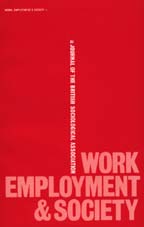No CrossRef data available.
Article contents
The New Retirement Agenda
Published online by Cambridge University Press: 01 June 1999
Abstract
John A. Vincent, Inequality and Old Age, London: UCL Press, 1995, £13.95, paper, vi+218 pp.
Richard Disney, Emily Grundy and Paul Johnson (eds.), The Dynamics of Retirement: Analyses of the Retirement Surveys, London: The Stationery Office, 1997, £36.00, paper, xvii+279 pp.
Alan Walker and Tony Maltby, Ageing Europe, Buckingham: Open University Press, 1997, £14.99, paper, x+149 pp.
The ancient Chinese curse - ‘may you live in interesting times’ - seems to be being applied to social gerontology. All Western economies have been experiencing several inter-related trends: falling labour force participation rates among males in their late 50s and early 60s, raising the question of whether ‘welfare to work’ compulsion will soon be applied to them; fears over population ageing after the second decade of the 21st century, with worsening gerontic dependency ratios; the problem of how to ‘reform’ state pensions, to achieve the seemingly-impossible task of both reducing costs and providing adequate cover for the growing number of citizens who will find themselves in the low-paid, casualised periphery of the labour market; and the likelihood of increased disability and chronic illness levels among the larger numbers of ‘oldest old’. Yet social gerontologists have risen to the challenge posed by these trends. Never has the literature on old age and ageing been so interesting, and these three books represent thoughtful and intelligent responses to questions that often invite ill-considered, apocalyptic answers.
- Type
- EXTENDED REVIEW
- Information
- Copyright
- 1999 BSA Publications Ltd


